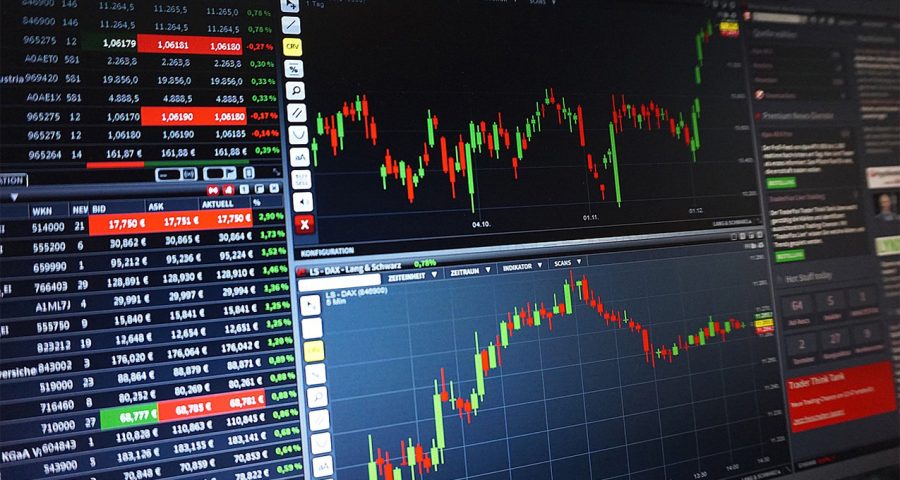
Trading Accounts: Types, Features, and How to Choose the Right One
A trading account is necessary for investors and traders who want to participate in the financial markets. It lets you buy and sell stocks, bonds, options, and other financial instruments. With so many different trading accounts available, choosing the right one for your needs can be overwhelming. In this article, we will discuss the different […]

A trading account is necessary for investors and traders who want to participate in the financial markets. It lets you buy and sell stocks, bonds, options, and other financial instruments.
With so many different trading accounts available, choosing the right one for your needs can be overwhelming. In this article, we will discuss the different types of trading accounts available, the features to consider when choosing one, and highlight how to choose the right portfolio for your needs and goals.
Types of trading accounts
Each type of trading account offers unique features and benefits designed to suit different trading styles, strategies, and goals. This section will explore the most common types of trading accounts and their characteristics.
Cent account
A cent account in forex is a type of trading account that uses cents as the base currency instead of dollars or euros. This means that instead of trading standard lots of 100,000 units of currency, you can trade micro-lots of 1,000 units, which allows for smaller position sizing and more flexibility in risk management. Cent accounts are often used by beginner traders who want to practice their skills with real money without risking a large amount of capital. They are also useful for traders who want to test out new strategies or expert advisors before using them in a standard account.
ECN or Zero account
An ECN (Electronic Communication Network) account is a type of trading account that offers direct access to the interbank market, where buyers and sellers of financial instruments can trade with each other. Unlike traditional brokerages, which act as intermediaries between traders and the market, ECN brokers connect traders directly to the liquidity providers, including banks, hedge funds, and other institutional investors. This allows for faster trade execution, tighter spreads, and greater transparency in pricing.
ECN accounts typically charge a commission per trade rather than marking up the spread, making them more cost-effective for high-volume traders. They are also popular among scalpers and other traders who rely on fast order execution and low latency.
Pro account
A Pro account in forex is a type of trading account designed for professional traders with a high level of trading experience and require advanced trading features and capabilities. These accounts typically offer lower spreads, higher leverage, and more sophisticated trading platforms than standard accounts.
Pro accounts may also include additional benefits, such as access to exclusive research and analysis tools, priority customer support, and custom-tailored trading conditions. However, Pro accounts may also require higher minimum deposits, and higher trading volumes and may have additional fees.
Features to Consider When Choosing a Trading Account
Here are some of the most vital features you should consider when choosing a trading account:
- Trading Fees: Trading fees are among the most important factors to consider when choosing a trading account. These fees can vary widely between brokers and can have a significant impact on your trading profits. Some brokers charge a commission per trade, while others mark up the spread. In addition, other fees may be considered, such as account maintenance fees, withdrawal fees, and inactivity fees.
- Account Minimums: Many trading accounts require a minimum deposit to open, and this amount can vary widely between brokers. Some brokers may offer no minimum deposit accounts, while others may require substantial capital to get started. Account minimums can also impact the types of accounts and trading strategies available.
- Trading Platforms: Trading platforms are the software used to access financial markets and execute trades. Various trading platforms are available, each with its own features, user interface, and capabilities. Some platforms are more user-friendly and intuitive, while others offer more advanced charting and analysis tools.
- Customer Support: Good customer support is essential when trading financial markets, as issues can arise anytime. Choosing a broker that offers reliable and responsive customer support, with multiple contact options such as email, phone, and live chat, is important. Ideally, the customer support team should be available 24/7 to assist when needed.
- Educational Resources: The financial markets can be complex and difficult to navigate, especially for beginner traders. Many brokers offer educational resources such as webinars, tutorials, and trading guides to help traders improve their skills and knowledge. Choosing a broker that offers comprehensive educational resources to help you develop your trading skills and stay informed about market developments is essential.
How to Choose the Right Trading Account
Identify your trading goals and preferred trading strategies to choose the right trading account. Research brokers that offer the types of accounts and features that meet your needs. Compare trading fees to ensure they are reasonable and fit within your budget. Consider account minimums and evaluate trading platforms to find the one that is most user-friendly and offers the features and tools you require. By following these steps and carefully assessing your options, you can choose a trading account that aligns with your goals and helps you succeed in the financial markets.
By: Isabel Morgan
